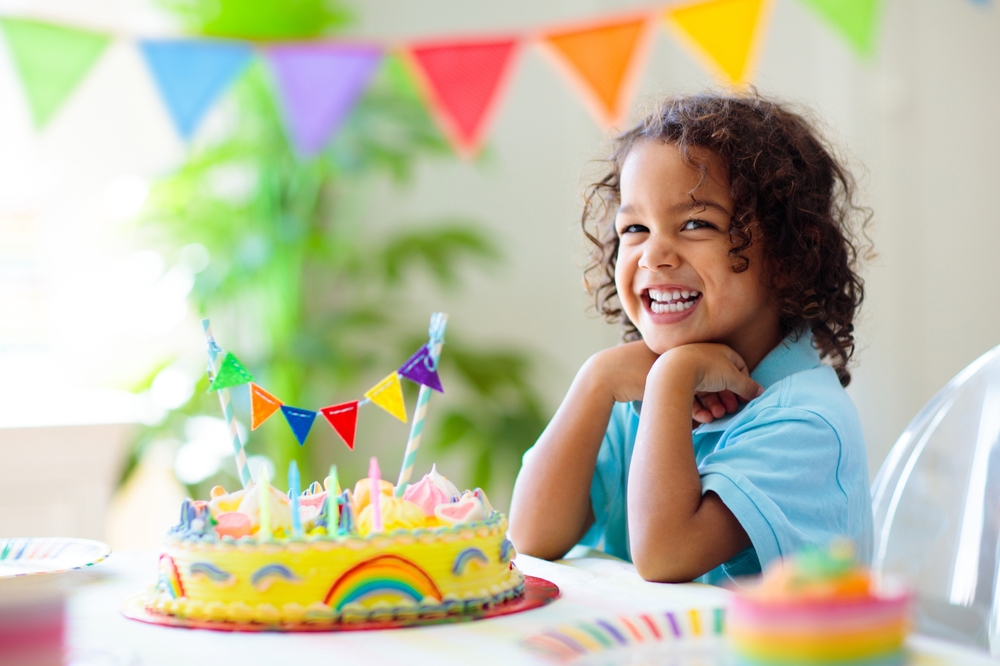Celebrations like Christmas, Hanukkah and Eid are the perfect excuse to socialise with family and friends. But, for adopted children, these events can feel quite overwhelming and may evoke strong emotions. So, whether you’re planning to host the festivities or visit relatives, here is our guide to navigating celebrations with your adopted child.

Understanding celebrations for adopted children
Many adopted children have endured abuse and neglect, and they will have all faced the turbulence of being moved into care before finding their forever family. These early experiences can have a lasting impact on children, leaving them with trauma and questions about their early lives.
Although these painful memories and questions can surface throughout the year, celebrations can be particularly triggering. They may have distressing memories of special occasions with their birth family, and if they have siblings, it may be difficult for them to accept being unable to celebrate with them.
So it’s important to look at celebrations from your child’s perspective and adapt the festivities so they feel safe, loved and comfortable.
Who will be hosting?
A big thing to consider when planning celebrations is the location. Who will be hosting? Much depends on what your child feels more comfortable with. Some children may prefer celebrating at home, where they can retreat to their bedroom if things get too much.
At the same time, some children may see this as an invasion of their safe place. In this case, it may be worth considering letting someone else host the special occasion so you can leave if things get too much for your child.
Whether you’re planning on hosting the event at home or attending elsewhere, here are some tips to help you prepare.

Discuss the celebrations with your child
Children feel more secure when they know what, where and when things are happening so they know what to expect. If your child is young, they may also need to be told why the celebration is taking place as it could be quite confusing for them if this is their first time celebrating.
Talk to your child about the upcoming festivities. You could also ask them if they mind people visiting the house, whether they’d prefer to celebrate elsewhere and if there is anything you can do to make them feel more comfortable. This discussion will help you make necessary adjustments so they feel safe and content during the upcoming event.
It’s also a good idea to let your child know who will be attending. If there will be some unfamiliar faces at the event, try to introduce them beforehand, but if this isn’t possible, consider showing your child some photos and share some details about the attendees in advance.
Setting the menu
Discuss food options for the celebration with your child and find out if there’s anything special they’d love to see on the menu. Then, let them help prepare the meal – they’ll feel proud when everyone enjoys the meal they helped create.
If you’re celebrating at someone else’s home, ease any food-related anxiety by sharing your child’s preferences with the host before reassuring your child that there will be food they’ll enjoy.
If your child struggles to sit at a dining table, try something more relaxed, like a buffet where everyone can grab food and nibble throughout the day. This way, no one’s tied to the table, and it could prevent your child from feeling left out if everyone else is sitting at the table or overwhelmed by sitting with a big group.
Set boundaries
Celebrations can sometimes lead to uncomfortable topics of conversation, and if this is your first social gathering since adopting your child, they may be curious and ask questions. So, you may need to let attendees know in advance whether the topic is strictly off-limits.
Be prepared for conversations that push your boundaries by having some responses ready to shut the discussion down. For example, you could say, “I’d love to tell you more, but I’d rather not get into it now.”
Other boundaries to consider are things like alcohol. If your child has had a negative experience with adults misusing alcohol, being around people consuming it could be alarming. So, you may need to ask the host to limit alcohol or remove it from the festivities altogether.
If family and friends don’t respect your boundaries, don’t be afraid to leave the situation. Your well-being and that of your child is the most important thing.
Create a safe space
Social gatherings, as lovely as they are, can be incredibly overwhelming for children living with trauma. Trauma alters the way a child’s brain processes sensory information, leaving them on high alert so they can quickly assess any potential danger. This means they can become easily overstimulated by new noises, tastes and faces and may need time out of the celebrations to regulate.
If you’re celebrating at someone else’s home, ask the host if there is a quiet and relaxing place your child can escape to if things get too much. You could also prepare an emergency pack of items to help soothe your child, like noise cancelling headphones, fidget toys or their favourite blanket.
Managing emotions
No matter how old your child is or how long they’ve been part of your family, religious festivals and special occasions can bring up complex emotions. While they may look forward to the celebration, thoughts about their birth family might still be on their mind.
You can help your child navigate their emotions by creating a safe space to share their feelings and letting them know that it’s okay to feel the way they do. If your child struggles to verbalise their emotions, pay close attention to their behaviour and offer comfort. You could also encourage them to express their feelings indirectly, for example, by drawing, writing, playing with toys or using emotion cards.
If it’s appropriate, you could acknowledge their birth family by lighting a candle or having a general chat about them. If your child has contact with their siblings, you could help them select a gift or make a card to give them during their next contact time.
Finally, check in with your child regularly to ensure they’re still okay with the upcoming celebrations.
Tap into support
Every parent needs support at some stage in their parenting journey, and when you adopt with us here at Adopters for Adoption, we can help you access support specific to your child’s needs.
Whether you think your child could benefit from therapeutic input or you’d like more training on parenting therapeutically, the Adoption Support Fund can help you pay for these services. When you join us, you also have access to the following resources:
- Adoption UK – All our approved adopters receive a free 12-month membership to Adoption UK.
- New Family Social – All our approved LGBTQIA+ adopters also receive membership to New Family Social.
- First4 Adoption – Whether you’re looking into adoption or have already welcomed a child, the First4Adoption website has a library of useful information to help you on your journey.
If you’re thinking about adopting a child and want to learn more about the adoption process or support for you and your child, please get in touch. Together, we can help more children find their forever homes where they feel safe, stable and loved.

